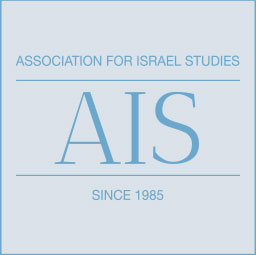Exploring The Lived Experience And Perspectives Of Girls and Young Women in Israel and Palestine
Israel Studies Review
Call for Papers

EXPLORING THE LIVED EXPERIENCE AND PERSPECTIVES OF GIRLS AND YOUNG WOMEN IN ISRAEL AND PALESTINE
Israel Studies Review seeks to develop local knowledge on girls from an international perspective. The special issue aims to shed light on the unique challenges, triumphs, and narratives that shape the lives of girls in the Israeli context, based on the understanding that these are situated and grounded within local political-social-cultural circumstances. Nonetheless, Israeli girls are influenced by global processes, such as neoliberal economics and ideology, through their exposure to global media and culture. The special issue will be guest-edited by Prof. Einat Lachover (Sapir Academic College).
Aims and Scope
For this special issue, contributions are invited that assess and analyze the multifaceted experiences of girls in Israel, employing concepts, models, and tools that are used globally so as to present a comprehensive interdisciplinary exploration of girlhood in Israel that considers the intersectionality of gender, nationality, race, culture, religion, and social contexts. The objective is to foster a nuanced understanding of the diverse realities that Israeli girls navigate, and provide a platform to examine their agency, empowerment, and contributions to society. This issue aims to contribute to the growing body of literature on girlhood studies and facilitate critical discussions about girls’ roles, aspirations, and identities given the political-societal-cultural local conditions, while also echoing transnational processes. Original articles employing a range of theoretical frameworks and methodological approaches are encouraged.
Themes for Submission
Possible topics include, but are not limited to:
- Identities and Intersectionality: Exploring the interplay between a variety of social identities, such as gender, nationality, ethnicity religion and culture in shaping the identities of girls in Israel;
- Israeli-Palestine Conflict: Studying the challenges and vulnerabilities of Israeli and Palestinian girls because of the conflict, as well as peacebuilding efforts and intercultural dialogue involving girls;
- Israel-Hamas war: Exploration of the experiences of girls amidst the conflict and social, political, and psychological impacts felt by girls;
- Education and Empowerment: Examining the role of formal and non-formal education in fostering empowerment, leadership skills, and self-esteem among girls in Israeli schools and communities;
- Sport and Movement: Examining girl athletes and amateurs participating in both individual and group sports, exploring the intersection of sport with diverse aspects of life;
- Media and Representation: Analyzing the representations of girls in Israeli media, literature, and popular culture and the impact on their self-perception and social roles;
- Social Activism and Agency: Investigating how Israeli girls engage in social, ecological, and political activism, advocating for their rights and social justice causes;
- Family and Gender Dynamics: Exploring family structures and gender roles in Israeli families and their influences on girls’ socialization and experiences;
- Health and Well-being: Investigating the physical and mental challenges faced by Israeli girls and the resources available to support their well-being; and
- Digital spaces and Technology: Examining the role of digital technologies and social media in shaping the experiences and relationships of girls in Israel.
Authors wishing to contribute should submit a paper proposal to: einatl@mail.sapir.ac.il
Submission of Abstract must include:
- A paper proposal of 250 words (not including references).
- A cover page giving brief biographical details (up to 100 words), institutional affiliation(s) and full contact information.
Timeline
- Proposal Abstracts: June 15, 2024
- Acceptance/Rejection Decisions: July 15, 2024
- Drafts of Full Papers Submitted: March 1, 2025
Drafts of Full Papers must include:
125 – word abstract and 6-8 key terms
Paper length: 6,500 words (including references) written according to The Chicago Manual of Style format.
Authors are responsible for following ISR guidelines and submitting a complete and original manuscript.
Contact
Please contact the special issue editor with any questions and/or send paper proposal abstracts to einatl@mail.sapir.ac.il
